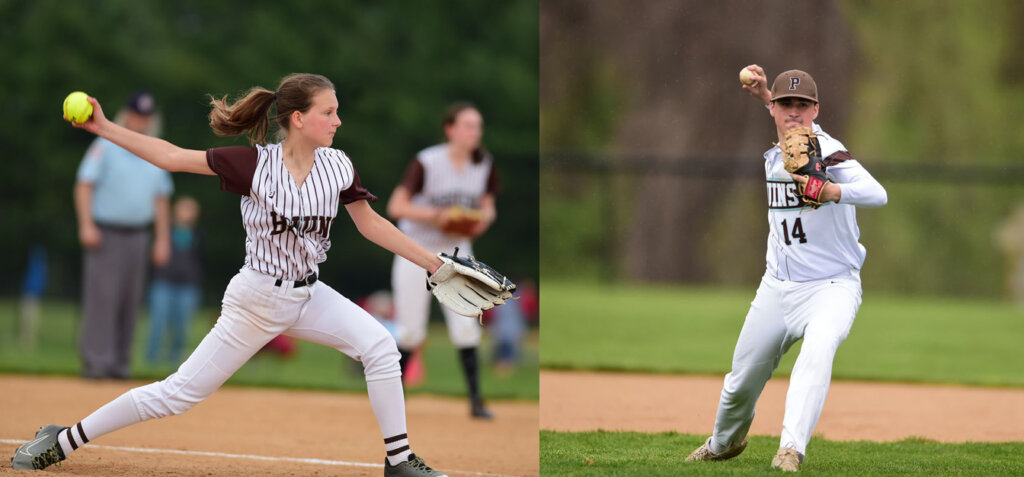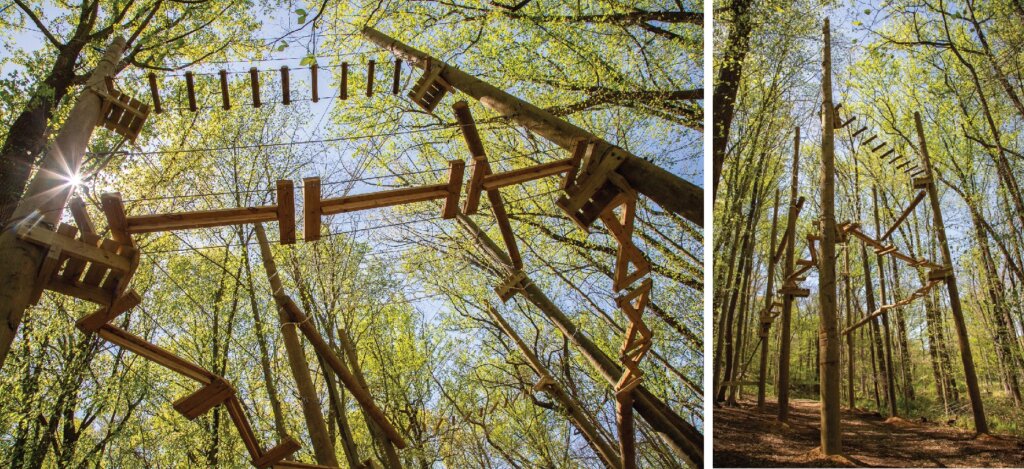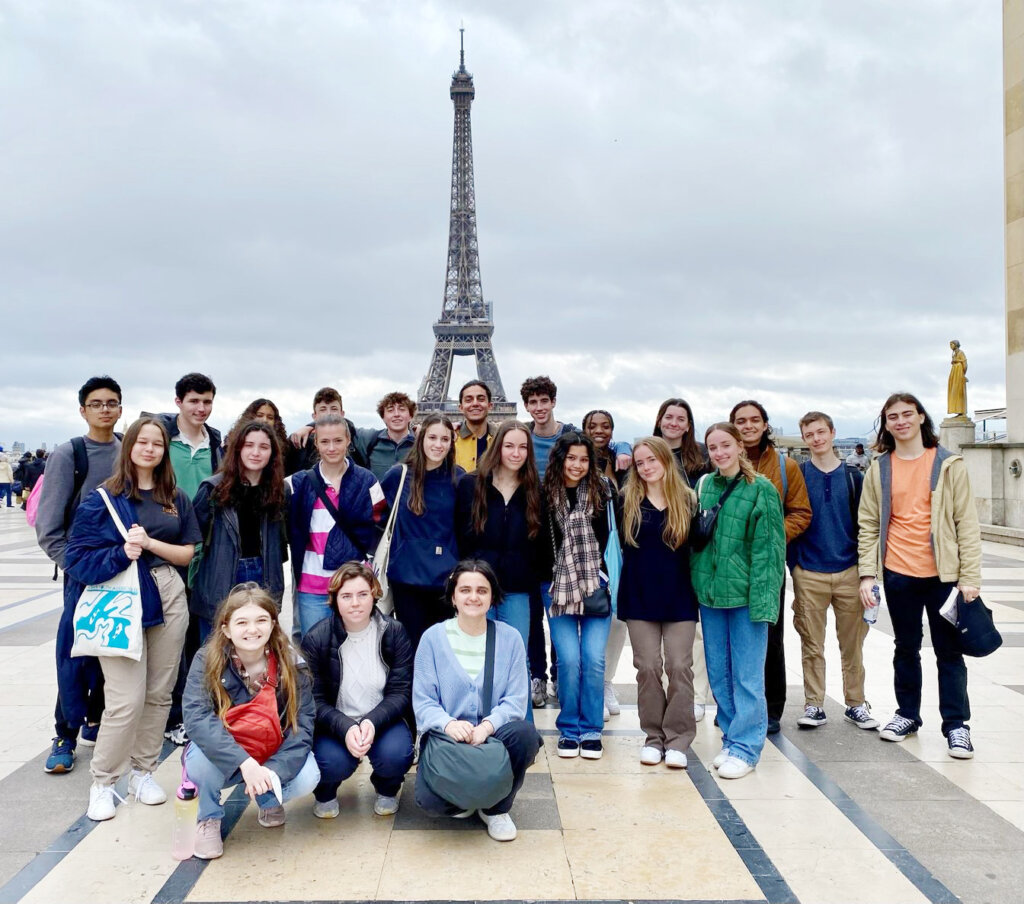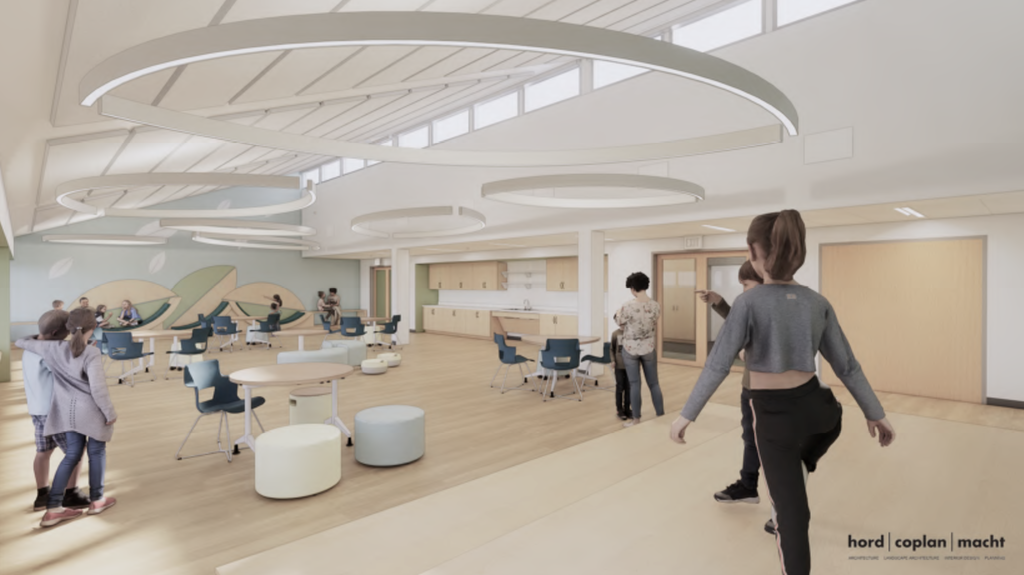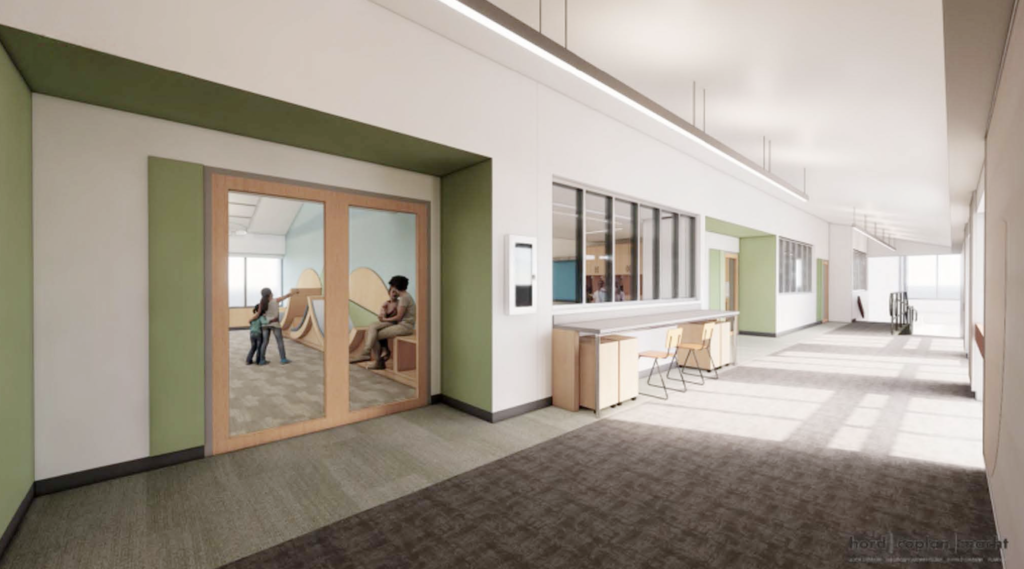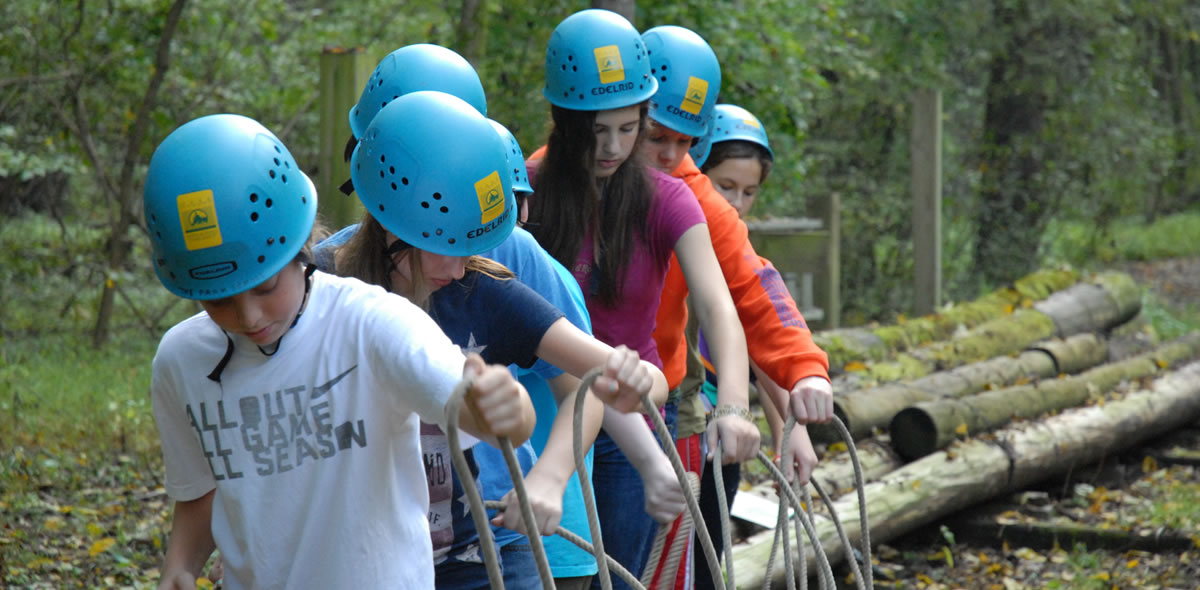Faculty Development
The F. Parvin Sharpless Faculty and Curricular Advancement Program (FACA), Park’s innovative program for professional development, provides teachers time and funding for intensive study that directly benefits Park students. Projects address a range of curricular and guidance issues identified as priorities for the school. Faculty work collaboratively, draw on the expertise of outside professionals, read, research, write, and discuss. The results are evident in an expansive, stimulating, and challenging curriculum that provides the best possible education for Park students.
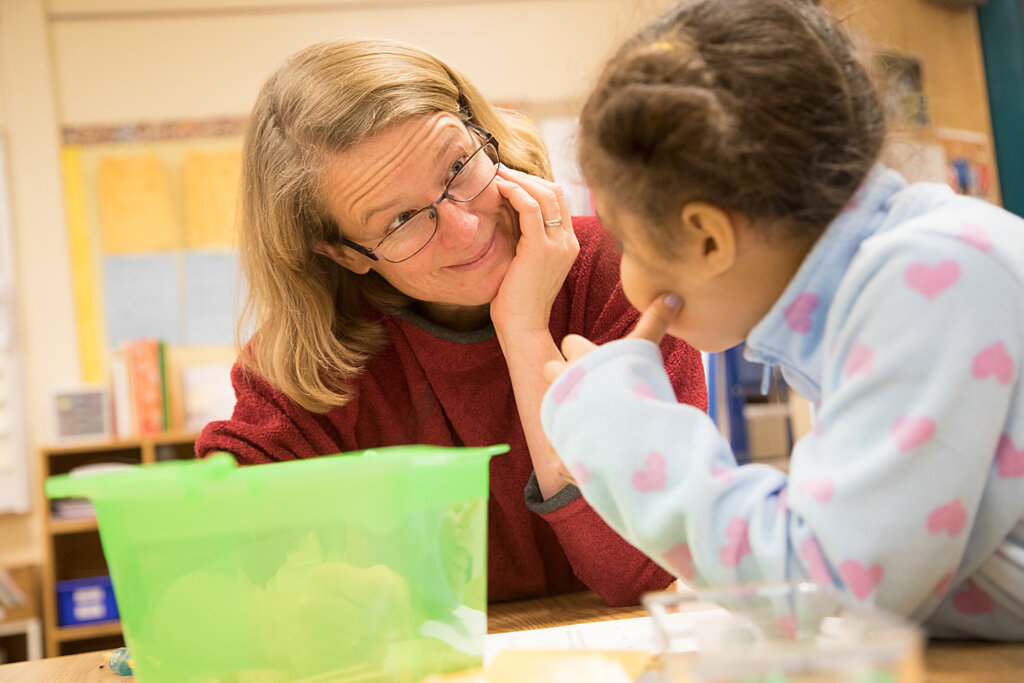
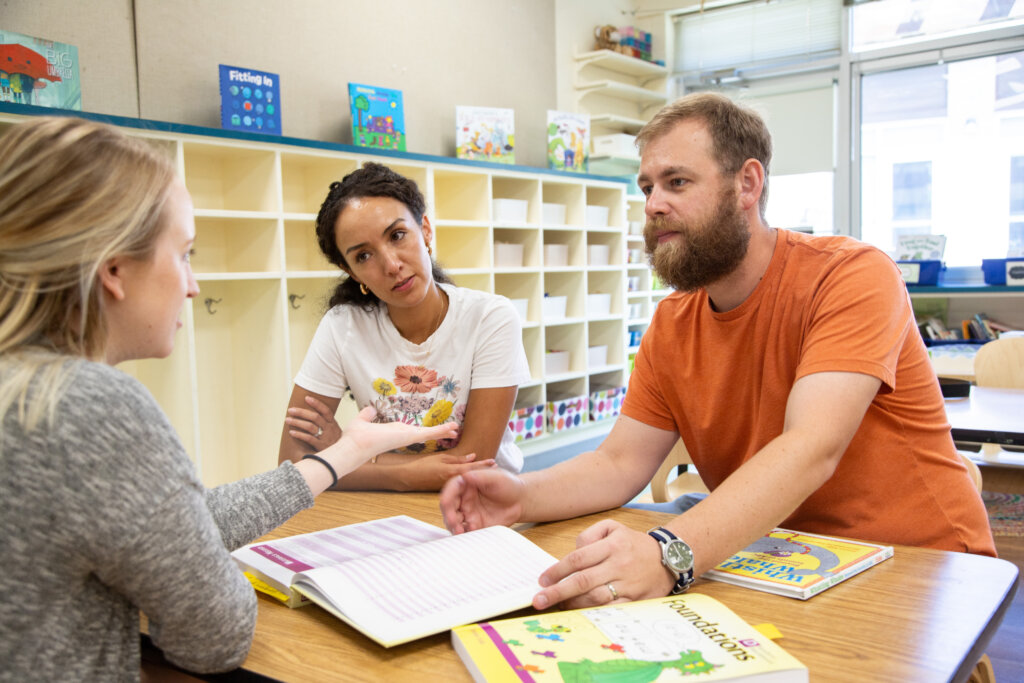
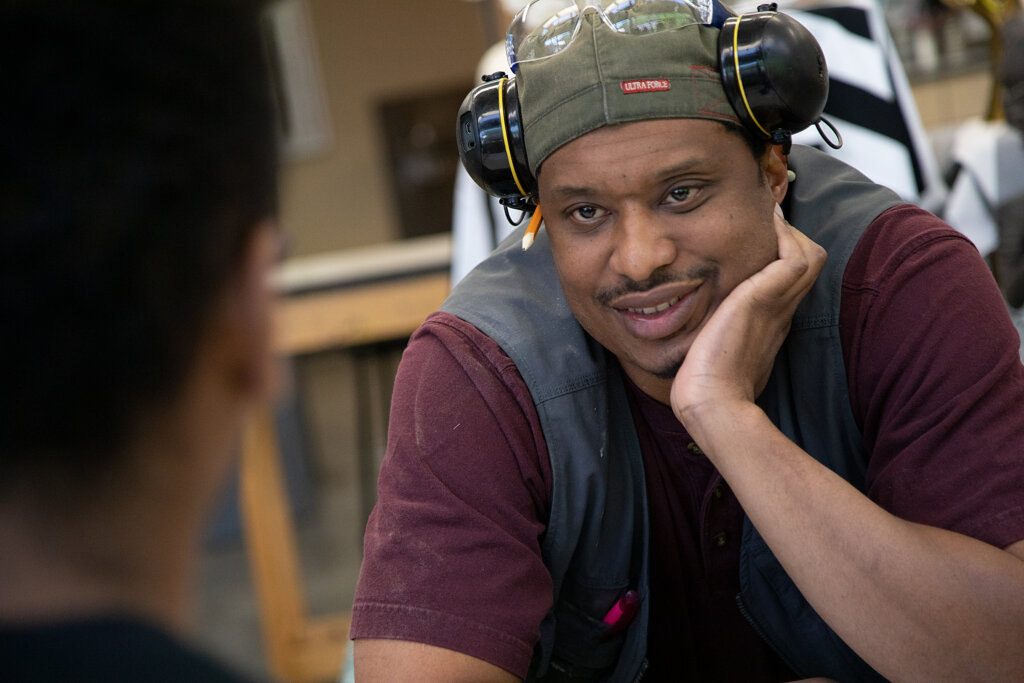
Since its inauguration in 1989, FACA has garnered national attention as a model for professional development. In 30 years, over 1000 grants have supported hundreds of projects and 82% of Park’s faculty. All areas of school life — academic, athletic, artistic, social, and technological — have been studied.
“Good scholarship is exacting. It involves taking time and taking risks. The spirit of FACA is expansive and experimental, stimulating teachers to encounter new ideas and to seek breadth and depth in their knowledge. Every stage of learning — from its initial enchantment to its inevitable frustrations — is honored and celebrated.”
Laura Amy Schlitz
Lower School Librarian
In summer 2024, 99 faculty members participated in 75 projects.
Published Works
While numerous book projects have received FACA funding, four have been published to great acclaim. Lower School librarian Laura Amy Schlitz won the 2008 John Newbery Medal for the most distinguished contribution to American literature for children for her collection of medieval monologues, Good Masters! Sweet Ladies!, originally written for her fifth grade students. With FACA support, Laura also wrote a biography, The Hero Schliemann: The Dreamer Who Dug For Troy. School Library Journal wrote, “[The book] paints a colorful picture of a selfish man who used his shrewdness and earned wealth to create a mythological and romantic legend. This intriguing, well-documented biography is made more compelling by information boxes on history and such literary figures as Homer.” A Drowned Maiden’s Hair: A Melodrama received the 2006 Cybil Award for Middle School Fiction and glowing reviews in The Wall Street Journal and The New York Times Book Review.
FACA Endowments
FACA was established by Park’s 75th Anniversary Campaign to celebrate and advance Park’s commitment to its faculty and to educational leadership. A $1 million challenge grant from the Joseph Meyerhoff Trusts established the original endowment. Additional funding was provided through the Nathan L. Cohen Faculty Enhancement Fund. The Campaign for Park in the mid-1990s added $1 million to the endowment, with establishment of the Louis B. Kohn II ’34 Fund for Student Life and Values, and with a gift from the Hecht-Levi Family Foundation. Additional support has come from the Lee Meyerhoff Hendler ’70 Ancillary Support Fund, E. E. Ford Foundation, and the Sheridan Foundation.
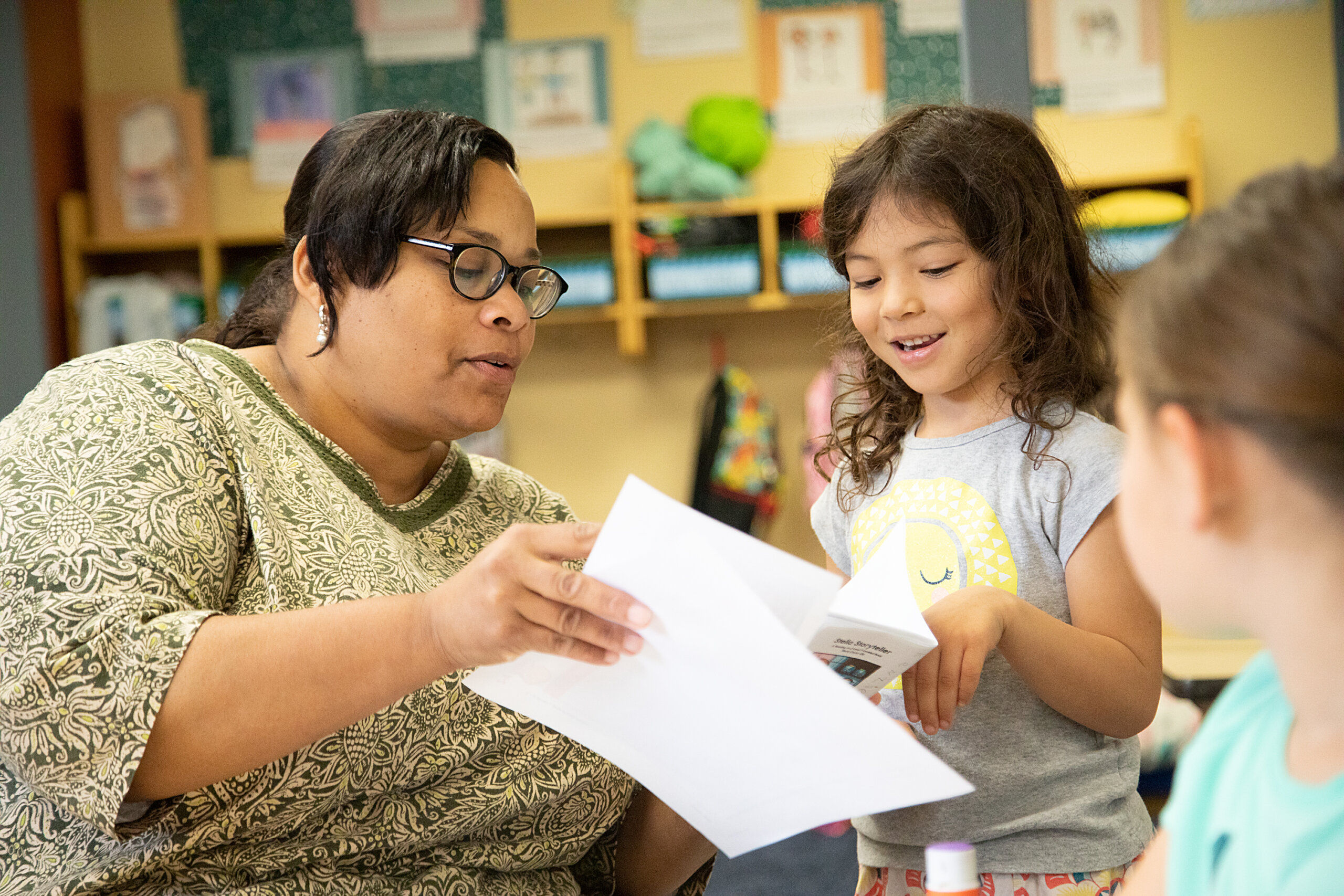
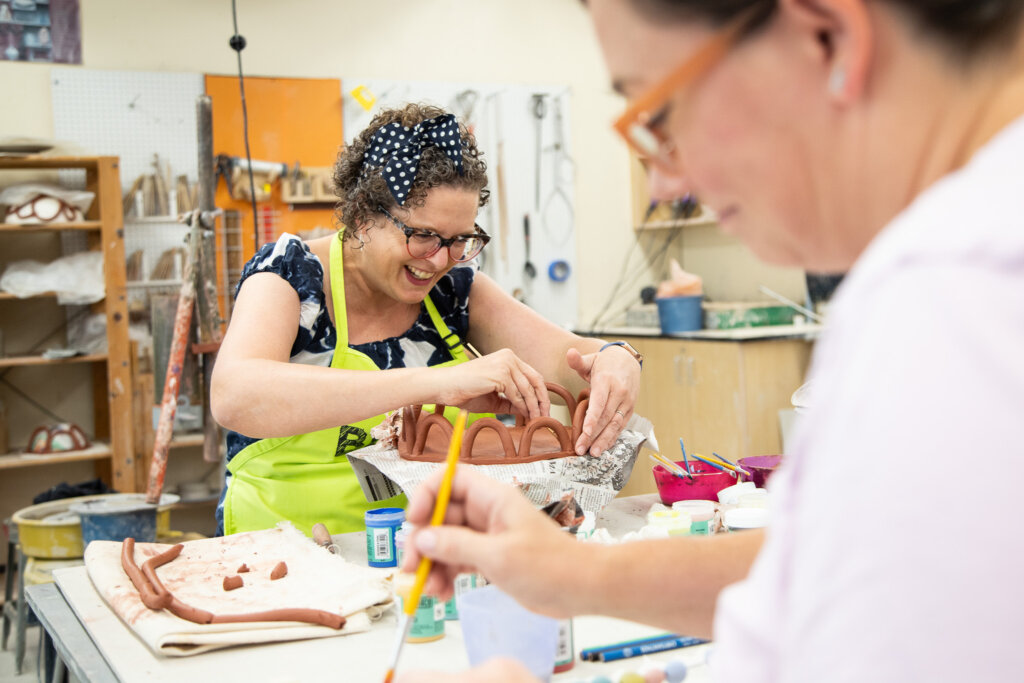
FACA Projects 2024
Early Childhood Math Curriculum
Amy Benson, Anna Taylor, Linda Butler, Bonnie Frost, Elizabeth Lewis, Evelyn Sanchez, June Bennett, Leah Balkowski
1st-5th Grade Math Curriculum
Amy Benson, Karla Villa, Becky Bloom, Michele Shirah ’05
Scope and Sequence of Second Grade
Becky Bloom, Marilyn Milton, Megan Brown
Literacy Curricula Documentation & Planning
Cara Gamble
Pre-K-Grade 1 Literacy
Cara Gamble, June Bennett, Elizabeth Lewis, Anna Taylor, Linda Butler, Karla Villa, Margie Herman, Evelyn Sanchez
1) Scope & Sequence: Assessment & Evaluation in Upper School Productions Classes, 2) Expanding Upper School Theater Electives
Charlie Junkins
Reimagining the Lower School Spanish Curriculum
Gaby Villanueva, Juanita Grillo
Language of the Living: Spanish as a Connection to Those Lost
Harley Bosco
Reimagining Play Spaces for All Park Students and Beyond
Jimmy Bonner
Expanding the Catalog of Modern Language Electives
Jonah Steiss
Stagecraft Scope and Sequence and Theatrical Lighting
Julie Borsetti
A la Découverte de L’héritage Culturel Judéo-Marocain (Discovering the Jewish Moroccan Cultural Heritage)
Karima Hana-Meksem
Redesign: French 2 Scope and Sequence for Incoming 9th Graders
Karima Hana-Meksem
Lower School Library Updating
Katelyn Levinson
A Dive into the World: Redesigning the 6th Grade Geography Curriculum
Kaylee Kisselburgh
Threads of Connection: Sewing Studio
Maggie Baker, Gaby Villanueva, Alicia Grothmann, Meg Brown, Bart Cook, Christine Tillman, Anna Droege, Catherine Hilsee
8th Grade Language Arts Scope and Sequence
Nicole Scott
The Teaching Poet: Culling the Incidental Archive
Sarah Schwartz
ISHC Analysis and Programming Implementation
Tucker Snow, Ashley Edwards, Edwin Gordon ’04, Kara Ker
Park Keyboards Program for Grades 6-12
Yazmine Fleming
4th Grade ELA Scope and Sequence
Michele Shirah ’05, Ali Baran, Jenny Harbold
The Development of Reflection Tools to Support Student Development and Understanding of the PE Habits of Mind (Self Awareness, Growth Mindset, Collaborative Skills, Knowledge/Skill)
Jeremy Smith
Reviewing French 1 Curriculum (Year 2)
Sofia Park
Tech-Related Trainings
Tara Northcott
Gathering, Reading, and Curating Resources
Sofia Park
Mathematics, Computer Science, and AI in the Upper School
Tony Asdourian, Jordan Paschke, Ed Jurkowitz
White Privilege Symposium
Tyler France, Heather Freas-Kostic, Pailin Gaither, Drew Schoff, Emily Fisher
Integrating and Adapting to AI in CS Classes
Jordan Paschke
Library Program: Habits of Mind, Scope and Sequence Framework, and Developing a 6th Grade Library Curriculum
Emily Fisher, Liz Proctor
Improving the Visibility and Accessibility of the Middle and Upper School Library Fiction Collection
Liz Proctor
Learning and Applying Updated Technology Tools to Reformat Reading Resource Materials
Margie Herman
Robotics Exploration
Tara Northcott
8th-9th Grade Transition
Melissa Osquist, Jessica Bolus, Emily Pan, Jonah Steiss, Lubna Najar, Sarah Howell, Katherine Arner, Nathalie Behrens, Drew Schoff, Tyler France
Cross-Divisional Peer Learning Support
Betsy Gerding, Karyn Fisher
Teaching Hip Hop at Park
Yazmine Fleming
Science Inventory Management
Blaire Northcott
Spanish 2: Curriculum Alignment and Metacognitive Skill Development
Jonah Steiss
Creating a Film Guide for Upper School Spanish Students
John Cruz
Upper School Science: Core 9 Workbook
Alexis Hudes ’16
From Lab to Classroom: Crafting Curriculum on the Edge of Science
Anna Droege
Curricular Follow Up: Generative Topics, Digital Portfolios, and Specification Grading
Christine Tillman
Understanding, Supporting, and Embracing Neurodiversity in the Academic Environment
Betsy Gerding, Karyn Fisher
Strings Program and Music Production Scope and Sequence
Doug Jameson
7th Grade Visual Art Curriculum Reframe
Sam Oshinsky ’08
Middle School Visual Art Scope and Sequence Mapping
Sam Oshinsky ’08
Beyond the Semester Elective: Expanding Holocaust Education at Park
Katherine Arner
Reexamining and Updating Shelter Building
Maggie Baker, Emma Hunt, Sarah Shelton
Scope and Sequence: Art History and Figure Drawing
Susan Asdourian
From Senghor to Césaire: Understanding La Négritude and its Role
Fathim Craven
Curriculum Mapping for Jazz, Pop, and Band Classes
Maeve Royce, Chris Peterson
Grammar Workbook
Angela Balcita, Sarah Schwartz
Renew, Revitalize & Reimagining the 2-1-2 Trail: Phase I, Summer 2024
Brian Vaught, Stradine Harris
Theater Scope and Sequence and Building a Strong Rehearsal Community
Gina Braden
Pre-K-2nd Grade Science Scope and Sequence
Laura Jacoby
Teaching about the Middle East
Anne Porter
Manageable Frequent Assessments
Anne Porter
Diving into Watercolor
Ann Starer
Designing “Contest Math”
Tom Brown, Walker Miller-Breetz
Continued Work on Photo Equipment Inventory for Upper School Arts Photography Program
Janna Rice
Scope and Sequence Work
Janna Rice
Spanish 1: On-line and IRL Interactive “Textbook” / Spanish 3 Launching Pad
Liz Ransom
Lower School and a Cappella Choral Groups Scope and Sequence
Bruce Bryant
Middle School Student Portfolios
Heather Freas-Kostic, Nicole Scott, Sam Oshinsky ’08, Kaylee Kisselburg, Maeve Royce, Ashley Edwards
Garden FACA 2024
Alison Penning, Juanita Grillo, Meg Brown, Nandi Cook-Creek
Screenprinting and Soda Firing Workshop
Alison Penning
Lower School Art Scope and Sequence Revisions
Alison Penning
Building a Working Relationship to Better Align the Upper School French Curriculum
Sofia Park, Karima Hana-Meksem
History 11 Curriculum
Sam Chapin, Grace Gahagan, Laura Brade
West Africa in the History Curriculum
Caroline Ingram
Initi8 Advoc8 2024-2025
Betsy Gerding
A Place for Us: Musical Theater as Refuge
Carlos Casilla-Nova, Lubna Najar
Music Electives and Middle/Upper School Choral Curriculum Revamp
Carlos Casilla-Nova
Middle School Restorative Strategies
Pailin Gaither, Shri Puri
Visual Arts Scope and Sequence with Resource Alignment
Rhys Joseph
Upper School Science: Core 10
Julie Rogers, Sarah Howell
FACA Projects 2023
Upper School Science: Core 9 Book
Alexis Hudes, Melissa Osquist
Lower School Anti-Racist Read Aloud Initiative
Ali Baran, June Bennett, Alicia Grothmann, Meg Brown, Maggie Baker, Katelyn Levinson, Jenny Harbold, Michele Shirah ’05
Growing the Garden
Alison Penning, Maggie Baker, Harley Bosco, Megan Brown, Juanita Grillo, Michele Shirah ’05
(Trying to) Publish a Picture Book
Alison Penning
Reorientation and Reorganization of the Counseling Department
Amy Ancona, Kara Ker, Tucker Snow
Upper School English Department Essay Workshop
Angela Balcita, Kirk Wulf, Lubna Najar, Sarah Schwartz, Sam Farmer
Art of the Essay Reboot
Angela Balcita
Faculty Civil Rights Trip Exploratory FACA
Angela Balcita
3rd-5th Grade Science Scope and Sequence
Anna Droege
Scaffolding an Inquiry-Based Model of Instruction to Reach More Students
Anne Porter
Sexuality Education (RE)imagined
Ashley Edwards
Developing Workshops/Presentations that can be Delivered Throughout the Year to Various Community Groups
Betsy Gerding, Karyn Fisher
Advoc8 2024
Betsy Gerding
Literacy Curriculum for K-2
Cara Gamble, June Bennett, Becky Bloom, Alicia Grothmann, Adam Rodgers, Marilyn Milton, Margie Herman, Elizabeth Lewis, Karla Villa
History 10 Curricular FACA
Caroline Ingram, Sam Chapin
Lower School PE Curriculum Scope and Sequence
Caroline Roche, Stradine Harris, Brian Vaught
Social Justice Curriculum Revision
Christina Cubera, Bonnie Frost
Scope and Sequence for Upper School Arts Electives
Christine Tillman
Ceramics: A Shared Thread
Christine Tillman, Alison Penning, Sam Oshinsky, Susan Asdourian, Rhys Joseph, Janna Rice, Ann Starer
Documenting the Scope and Sequence for the Middle School Math Program
David Lowther, Andrew Schoff, Rich Espey and Linda Brennan
Upper School Science Electives Skills and Content
Elliott Huntsman, Elizabeth Fisk, Carla Guarraia
Oral Proficiency: A collection of authentic resources and engaging activities that will enhance students’ understanding and speaking skills.
Fathim Craven
Afrolatin@s Trailblazers, Movers, and Shakers
Gaby Villanueva, Juanita Grillo
Analytic Geometry Consolidation and Re-Write
Garrett Ruley, Tony Asdourian, Tom Brown, Mimi Cukier, Walker Miller-Breetz, Jordan Pashke
Boys’ Varsity Soccer
Geoff Meyers
Acting Scope and Sequence and Production Process Alignment
Gina Braden, Charlie Junkins, Julie Borsetti, Lisa Dickenson
Revision and 9-10 Alignment in Upper School History Required Courses
Grace Gahagan, Katherine Arner, Anne Porter
Bridging Envision and Investigations: A Guide for 5th Grade Math Scope and Sequence
Harley Bosco, Sharen Pula
Student Portfolios: Reviewing phase I and preparing for phase II
Heather Freas-Kostic, Carrie Vaughn
Meeting a Variety of Language-Based Learning Needs in the Middle School Language Arts Classroom
Heather Freas-Kostic
Speaking Guides: Deepening students’ involvement in the cultural learning in the Modern Language Classroom
Jacklyn Deacon
Creating a Photo Equipment Inventory and Check-Out System for Upper School Arts Photography Program
Janna Rice
Teaching French 2 at Park School
Jenny Sorel, Karima Hana-Meksem
Filmmaking for Upper School
John Cruz
Engineering Professional Development (Project Lead the Way)
Julie Rogers, Melissa Osquist
Creating Research Stations for 1st and 2nd Grade Students
Katelyn Levinson, Meghan Marinucci
Build a New Elective on the History, Memory, and Meaning of the Holocaust
Katherine Arner
Reshape and Restructure the 6th Grade Social Studies Curriculum
Kaylee Kisselburgh
Scope and Sequence of General Music in Grades 1-3
Yazmine Fleming
Accomplices in Action (AIA)
Tara Northcott
How Social and Emotional Development Influence Learning (particularly) Literacy Skills
Linda Butler, Anna Taylor
K-12 Climate Change Education and Lessons
Liz Ransom, Xiaomu Hu
The Art of Protest
Lubna Najar
Middle School Large Ensembles: Designing Curriculum for Generation Alpha
Maeve Royce, Doug Jameson, Carlos Casilla-Nova
Finding Fit – Exploring Local Colleges, Community Colleges, and Universities
Matt Hanibal
ARTE Y MÚSICA EN VENEZUELA
Nathalie Behrens
Advanced Topics in Modern Languages
Nathalie Behrens
Building the Differentiated Approaches to Teaching Writing in the 8th Grade Language Arts Program
Nicole Scott
Fab Collab: Social Studies and Library Research Skills
Paul Worley, Pailin Gaither, Kaylee Kisselburgh, Liz Proctor
Applying the Updated Framework for Teaching (FfT) to the Park Department Chairs Observations of New Faculty Program
Rob Piper
Attend the Exeter Humanities Institute
Salvador Barajas
6th Grade Art Curriculum Redesign
Sam Oshinksy ’08
Refine Curriculum Maps
Sarah Shelton
Redesigning the Etymology and Semantics Course
Sarah Schwartz
Designing a French 1 Curriculum
Sofia Park
Tech FACA Extension
Tara Northcott
Updating Chinese Song Book
Xiaomu Hu
Designing a Lower School Jazz Curriculum that Supports the Park Jazz and Modern Music Program
Yazmine Fleming, Christopher Peterson, Maeve Royce, Bruce Bryan
FACA Projects 2022
One-Week Projects
Develop Syllabus/Course Content for Exhibitions Design: Architecture
Janna Rice
Development of Executive Function Curriculum
Karyn Fisher
History 10 Curriculum Redesign
Katherine Arner
Animation Training
Janna Rice
Best Practices on Teaching Writing
Nicole Scott
Civil Rights Movement Journey
Sonja Hayes
Creating Sub Lessons Centered on DEI and Music
Yazmine Fleming
Foundations – Logic of English Curriculum
Katelyn Levinson, Becky Bloom, Meg Brown, Cara Gamble, Alicia Grothmann, Margie Herman, Marilyn Milton, Adam Rogers, June Bennett, Shannon LeVan
Foundations – Logic of English (part 2) Master Teacher Training
June Bennett, Shannon LeVan
Full History Department
Katherine Arner, Samuel Chapin, Grace Gahagan, Sonja Hayes, Anne Porter
Gr 7 LA & SS Curriculum
Pailin Gaither, Geoff Meyers
History 10 Curriculum Redesign
Samuel Chapin, Caroline Ingram
Jazz Scope & Sequence
Adele Dinerstein, Chris Peterson, Maeve Royce
Learning Support/Advoc8
Besty Gerding
Library 6 Planning
Liz Proctor
Online Course: How to Learn Math for Teachers
Becky Bloom, Linda Brennan, Meg Brown
Researching Scientists, Engineers and Artists in STEM Fields
Anna Droege
Scope and Sequence – First Grade
Cara Gamble
Update/Diversify Team-Taught Courses
Angela Balcita, Adele Dinerstein
Two-Week Projects
Comprehensible Input Ideas and Techniques
Pelle Wertheimer
Compile Gr 3 Resources for Theme and ELA
Addie Adelugba
Acclimating new MS Math Faculty
Dave Lowther
Diversify the Music Curriculum
Bruce Bryant
History 9 Curriculum
Grace Gahagan, Anne Porter
Improving Offerings for Classroom Instruction
Rhys Joseph
Modern Language Benchmarks
Nathalie Behrens, John Cruz, Xiaomu Hu, Deborah Hull, Jonathan Montalvo Roman, Sofia Park, Elizabeth Ransom, Jenny Sorel, Gabriela Villanueva
Research Portfolios & Conferences
Alpana Chibber, Fathim Craven, Heather Freas-Kostic, Carrie Vaughn
Creating Technology Education Space for Faculty
Christopher Case, Rich Espey, Yazmine Fleming, Stradine Harris, Margie Herman, Tara Northcott, Alison Penning, Ann Starer
Alignment of Library collection for PreK-Grade 2
Katelyn Levinson
Decolonizing the Language Classroom and Instruction
Jacklyn Deacon
Eytmology and Semantics Deep-Dive
Sarah Schwartz
Literacy Through Play and Beyond in PreK
Linda Butler, Anna Taylor
Re-imagining the DNS Unit
Tony Asdourian, Tom Brown, Mimi Cukier, Jordan Paschke, Garrett Ruley, Katherine Socha
Reading and Processing Literature Related to DEI
Tara Northcott
CRT from a Latinx Lens
Alejandro Hurtado
Classroom Curriculum Development & Outdoor Curricular/ Co-Curricular Development
David Fenigstein, Elizabeth Fisk, Carla Guarraia, Alexis Hudes, Blair Northcott, Tara Northcott, Melissa Osquist, Julie Rogers
Ditto Mag
Christina Cubera, Bonnie Frost
English 9 Curriculum
Angela Balcita, Salvador Barajas, Lubna Najar, Kirk Wulf
How to Learn Math for Teachers
Elise Altschuler, Jenny Harbold
Logic of English – Preparing for a new ELA program
Ali Baran, Harley Bosco, Jenny Harbold, Michele Shirah
Public Digital Humanities
Salvador Barajas, Sonja Hayes
Redesign the sequence and content of 6th and 7th grade games
Gina Braden
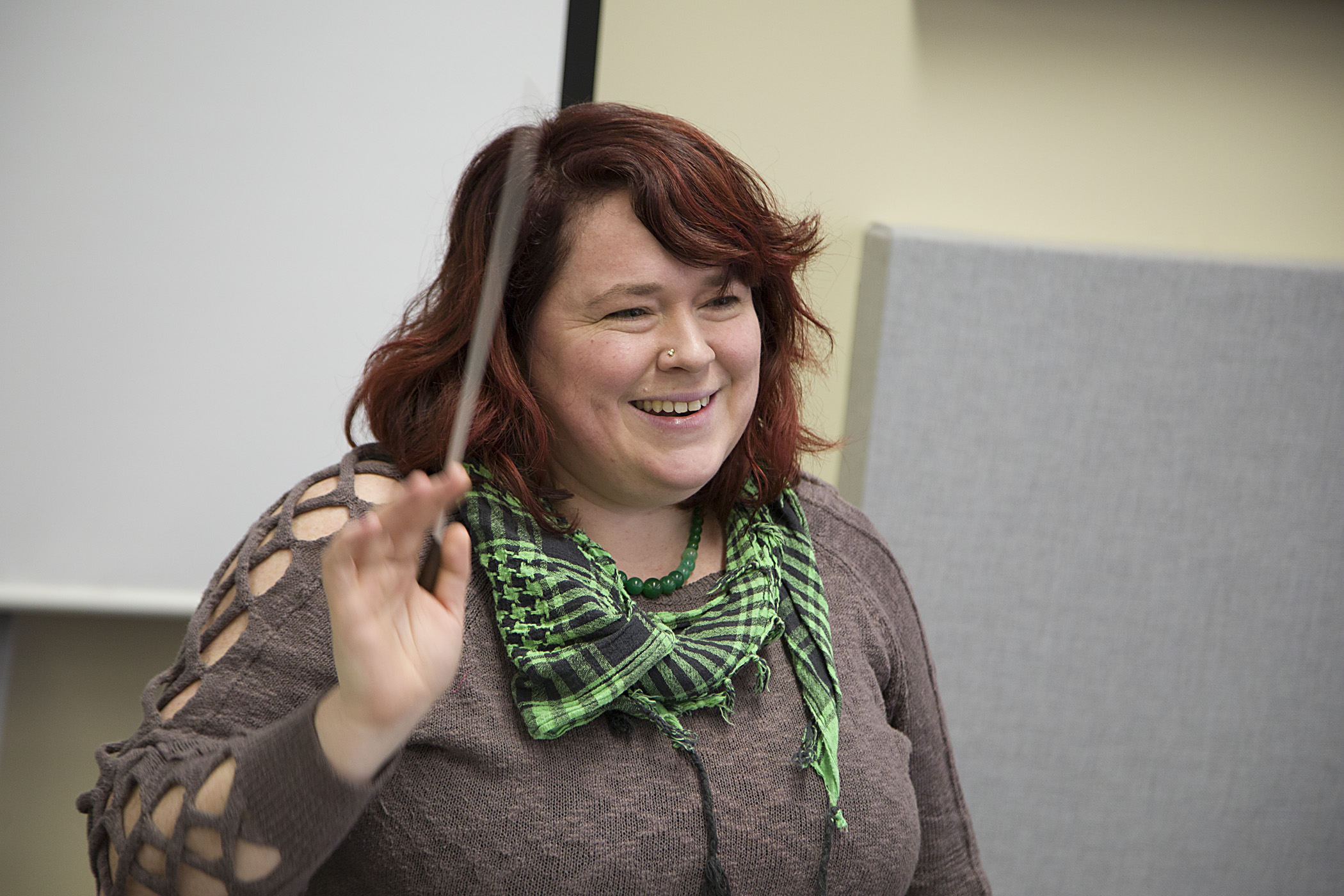
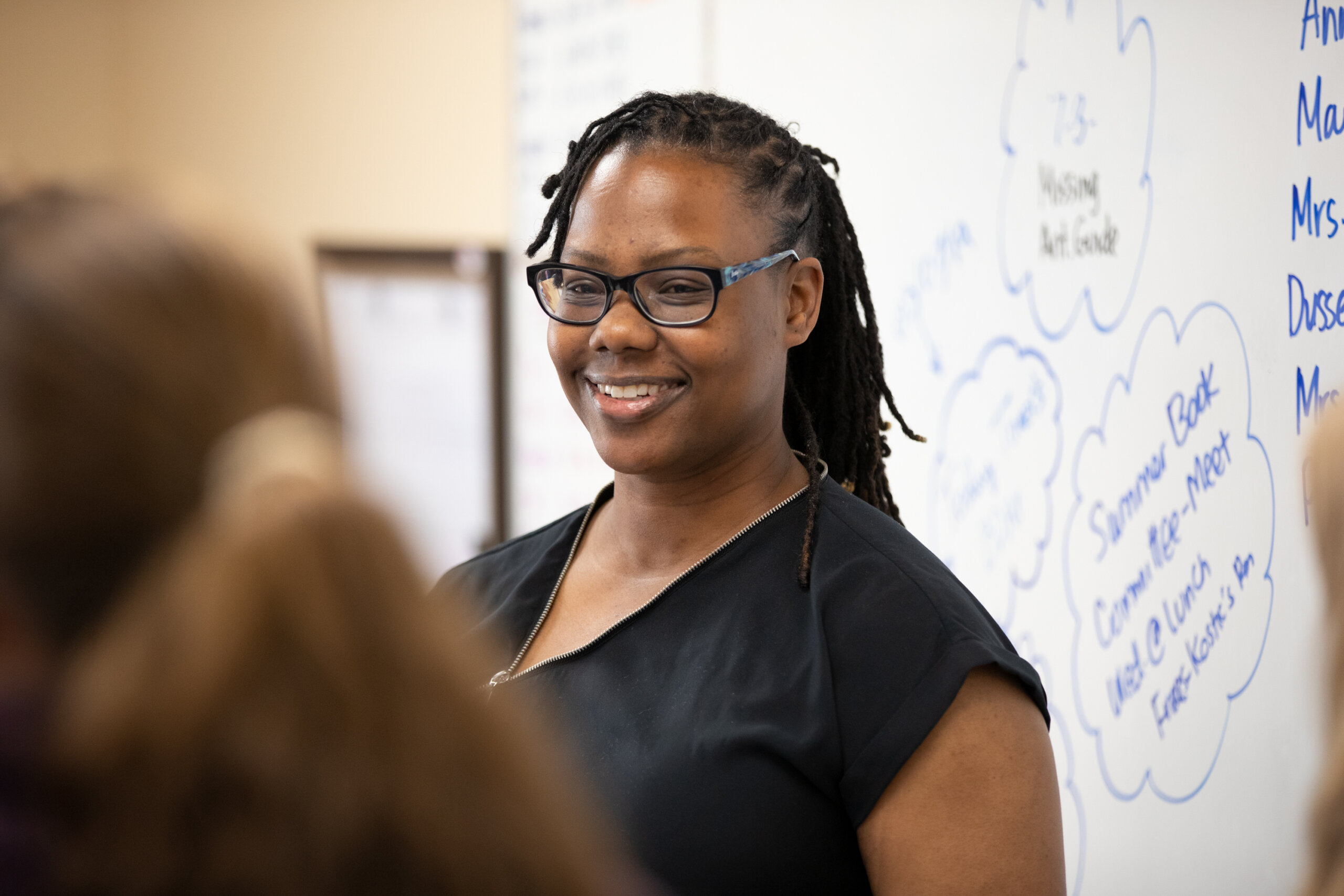
Highlights from past FACA Projects
Engineering
The engineering FACA team pursued an ambitious four-week agenda that included the creation of a “Student Guide to Engineering” for Upper Schoolers enrolled in the engineering elective. The guide supplements the classroom text and provides a framework for solving problems, introduces and reviews important concepts, and supplies a multitude of resources for students. In addition, the ninth grade physics course will benefit from the addition of a series of projects, activities, and lab exercises designed to reinforce understanding of engineering concepts and promote interest in applied technologies.
Stories from Home
Stories from Home offered an opportunity for a small group of teachers to reflect together for a week on the concept of home, framed by an understanding that “we can’t truly be ourselves and bring ourselves fully to work if we don’t really know where we come from and we don’t have a space to share who we are.” Through writing, sharing stories and artifacts, and reading, this cohort laid the groundwork for future groups of Park faculty to explore ways to make the school, our “second home,” a place that is safe and comfortable for everyone, no matter where we come from.
The Adolescent Brain
The Middle School faculty consulted NIH researcher Dr. Jay Giedd in their division-wide project on how young adolescents learn (“Brain” FACA). This project has informed divisional work in both guidance and pedagogy ever since. Cathy Schmidt, project chair, says: “The ‘Brain FACA’ of 2003 has had a continuous impact on Middle School. There is not a week that goes by that someone doesn’t refer to the connection between our studies of the neuro-scientific discoveries about adolescents and our goal of moving each student toward higher levels of cognition. We learned the scientific reasons why certain approaches to teaching will work and others will not.”
Eighth Grade Interdisciplinary Program
A team of eighth grade teachers designed an initiative for their students to explore topics related to advocacy, the grade-level theme. “Advoc8” is a multi-faceted process through which students familiarize themselves with a community issue in search of a solution, then develop a proposal, either individually or in small groups, to address the problem. This authentic and research-based approach will include consultation with those directly impacted by the problem, and will lead to greater understanding of the power of the individual as an agent of change.
Mathematical Habits of Mind
Park’s Upper School mathematics department wrote an original curriculum for grades 9-11. (To our best knowledge, Park is one of only five schools in the nation undertaking this level of curricular work.) Tony Asdourian cites working on this project as “the most valuable educational experience of my life.”
Diversity in the Curriculum
Middle School Social Studies Chair Cathy Schmidt has done research to add a unit on Africa to eighth grade social studies, and in summer 2007, Upper School History teachers researched the Ottoman Empire and North Africa, Haiti, and Mexico to enhance required courses and electives in non-Western history.
Lower School Word Study
A group of Lower School teachers representing first through fourth grades immersed themselves in the teaching of word study, a category that includes teaching the skills necessary for reading and writing, i.e., spelling, phonics, vocabulary, and grammar. Building upon the work of previous FACA projects, the group delved into current research into best practices, identified priorities, outlined shared goals to ensure a consistent experience across grade levels, and planned for parent education opportunities, all in the service of a strong language arts experience for our students.
Award-Winning Writing
Laura Amy Schlitz, 2008 Newbery Medal winner for Good Masters! Sweet Ladies!, started work on this book through an individual FACA writing project. She dedicated another of her books, A Drowned Maiden’s Hair, to the “Faculty Writers” FACA group, whom she describes as “magicians and midwives” to her book.
Civic Engagement
Projects on “Habitat for Humanity” and “Service and Community” at Park School have supported the development of service activities and establishment of “Park Service,” a volunteer group of faculty and students which meets weekly to coordinate activities.
Broadening the Conversation about Race
Eighty faculty, administrators, and staff have participated in “Broadening the Conversation about Race.” Park faculty presented the model at the NAIS People of Color Conference in 2008 and have since offered it as a professional development activity for participants in Baltimore’s public/independent school Middle Grades Partnership program. The FACA Race project has led to an ongoing discussion group for Upper School students and to active diversity committees in all three divisions.
Harvard’s Project Zero
Pre-work for the 2007 division-wide project on “Differentiated Learning in the Middle School Classroom” included work by three members of the Middle School science faculty, who took an on-line Project Zero course (Harvard Graduate School of Education), and piloted new approaches in their classrooms. Other groups of faculty have attended the Project Zero Institute to support their work on curricular design.
